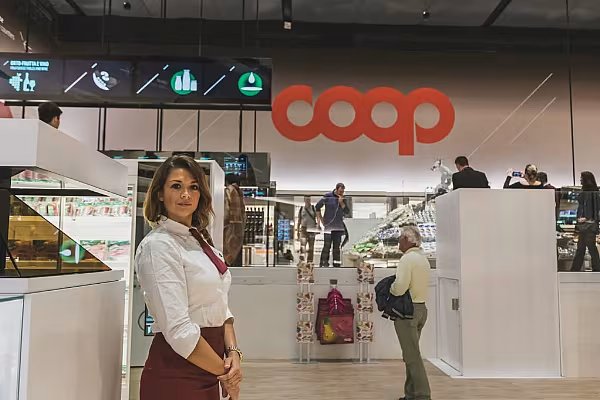Italian consumers continue to be among the biggest food purchasers in the world, with 19% of their spend going on food and drinks, however, socio-economic and political issues are weighing on their purchasing habits, a major study has found.
That's according to the Coop Report 2018, published by the Ancc-Coop cooperative with support from REF Ricerche, Nielsen, Iri Information Resources, GFK, Demos, Nomisma. Pwc and Mediobanca.
It found that despite a positive 2017, the first half of this year has shown weaker growth in food sales (+0.6% in value sales, with inflation of 1.1%), and a shift more towards fresh and premium products.
In terms of demographics, the study found that while consumption is increasing among the wealthiest consumers (+2.8%) and families with children (+2%), those at the bottom end of the wage structure are consuming less (-4%), as are under-35s (-7%).
Tale Of Two Markets
Italy is also becoming a more polarised market in terms of how people shop, with an increase in sales at both the premium and discount end. The sale of 'luxury' items rose by 9.3% last year, while that of the most basic products also saw a gain, of 2.1%.
Consumers are also embracing healthier and dietary-specific products, the study found, with healthy items seeing a 2.3% gain in the first half of 2018 (although this rose by 5% in the first half of 2017), and gluten free up by 1%.
Sales of lactose-free products are up 6%, with organic product sales now growing by double digits, according to the study.
Italian shoppers are also proud of their food provenance, with sales of products bearing a '100% Italian' certification rising by 9%. In addition, smaller, authentic alternatives to larger brands are also performing well (+4.3%), as are retailers that are focused on specific territories (+3.4%).
Italian consumers are also eager for more convenient options, according to the Coop study. The 'ready to eat' category is one of the best-performing in the Italian marketplace, with a 6% gain in sales, while online sales are also enjoying a boost.
In the first three months of 2018 alone, some 3.5 million Italians availed of food delivery (an 80% gain compared to 2017), while online food sales jumped 34% in the first six months of the year.
Social Change
Commenting on the Coop Report 2018 findings, Marco Pedroni, president of Coop Italia said, "We are experiencing a phase of great social and economic tensions. Growth has almost stopped and real consumption in the first half has been down.
"If we look at the large-scale retail market in Italy it is clear that it is a or the most complex in Europe, not only because it grows less and is more crowded, but also because it is subject to sudden changes in consumer behaviour."
He added that Coop's challenge is to "offer good, quality food, to all our consumers, including those at the lower end of society", calling on the Italian government to avoid raising VAT on food, which would be "an unfair measure for families and disastrous for consumption".
Following a first quarter performance in which the retailer saw a slowdown in sales, Pedroni added that he expects Coop's full-year sales to be "in line" with those reported in 2017.
© 2018 European Supermarket Magazine – your source for the latest retail news. Article by Stephen Wynne-Jones. Click subscribe to sign up to ESM: European Supermarket Magazine.














